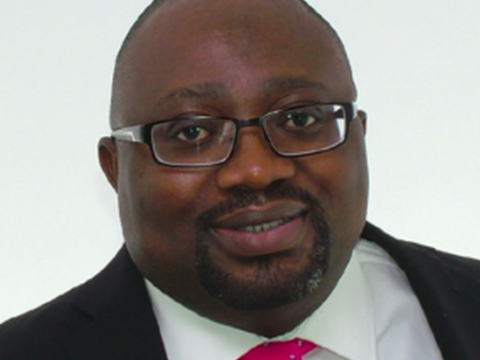By Mabinty M. Kamara
Member States of the United Nations have commended Sierra Leone’s efforts in various aspects in ensuring that the rights and dignity of its citizens and other people living in the state are protected and restored.
Contributing virtually on the 12 May 2021 at the ongoing 38th Session of the Working Group of the Universal Periodic Review (UPR) mechanism of the Human Rights Council held at the United Nations Assembly Hall in Geneva, Switzerland, Sierra Leone’s Attorney General and Minister of Justice, Anthony Brewah took the committee through the strides made by the government in meeting the recommendations that emanated from the last review session in 2016.
He added that the submitted national human rights report reflects achievements and challenges in fulfilling Sierra Leone's human rights treaty obligations during the implementation period under review.
The Attorney General highlighted the steps made in moving forward the Constitutional Review process, strengthening the Human Rights Commission of Sierra Leone, undertaking comprehensive justice sector reforms including the newly established Sexual Offences Model Court as part of the High Court and land rights reforms, steps to abolish the Death penalty, repeal of part five of the criminal and seditious libel and the review of the sexual offences act among others.
“My Government has recently approved the recommendations made by the Committee of Experts on the Justice Cowan Constitutional Review Report and the 2018 Government Whitepaper. They are currently at the Government's printing department to be published", he said.
He added that following the 2nd cycle UPR in 2016, Government immediately commenced the implementation of the 177 accepted recommendations.
“We also fully implemented four (4) and partially implemented nine (9) of the remaining 31 noted recommendations. This is about 91% of the total 2nd cycle recommendations. Sierra Leone intensified efforts to eliminate discrimination against children, like persons with disability, the protection of the rights of children, women and other persons in vulnerable situations occupy center stage in our Medium-Term National Development Plan", he said.
After the presentation by the Attorney General, UN Member States such as the United Kingdom, United States of America, Uganda, Uruguay, United Arab Emirates amongst other countries commended Sierra Leone for repealing the criminal libel law, the fight against corruption, the enactment of a policy that allows pregnant girls back to school and the national civil registration process. The Hands Off Our Girls Campaign as part of the national response to gender-based violence on women and girls, guaranteeing the independence of the judiciary and other states institutions, and combating human trafficking and child marriage were other areas the country was praised for.
However, the Member States recommended that the Government of Sierra Leone accelerate necessary legislative processes to abolish the death penalty, eradicate female genital mutilation, provide training for law enforcement officers, and implement laws to address discrimination against women, girls, persons with disabilities and other vulnerable groups. They also suggested for increased budgetary allocation to improve prison conditions including decongestion, improve on hygiene, sanitary condition and safe drinking water in prisons and to increase budgetary allocations to address sexual and gender based violence and improving access to resources by survivals. Repeal the 1861 law which criminalizes same sex marriage between man and man and aligning government policies with strategies that can help alleviate poverty on the population were other issues highlighted for consideration.
Responding to the issues raised regarding female genital mutilation and other gender issues, the Minister of Gender and Children's Affairs, Manty Tarawalli, said Sierra Leone is committed to the progressive realization of the rights of people based on the freedom to associate and participate in cultural activities to the extent that they are capable of making such decisions.
She added that the Government's policy that bans FGM initiation of girls under the age of 18 remains in force. She explained that the criminal law under Sections 18, 20 and 49 of the Offences against the Person Act could be invoked to prosecute those who inflict assault or bodily harm on non-consenting adults in the course of performing FGM initiations.
"MOUs have been signed with all Chiefs and leaders of the secret societies, which gives them the authority to monitor and enforce the ban on under-age initiation of girls. At the same time, the Ministry of Local Government regulates the activities of the secret societies through the local chiefs. This has contributed to a sharp decline in the rate of FGM from 98% in 2007 to 78% (MICS 2019)", she concluded.
Ambassador to Switzerland and Permanent Representative to the United Nations Office and other International Organizations, Dr. Lansana Gberie, said Sierra Leone is firmly committed to a comprehensive approach to Sustainable Development Goals, adding that a successful implementation of the SDGs must directly address human rights issues such as the right to education and development.
When addressing concerns about the recent Cybercrime Bill that the Government introduced in Parliament a few months ago Ambassador Gberie said that nothing in the Bill could be used to stifle freedom of expression or the media.
At the end of the session, Sierra Leone promised to look carefully at all the recommendations and use the Human Rights Council session in September 2021 to indicate which recommendations it will accept or note.
This is the third time that Sierra Leone’s human record has been probed by the UPR.
Copyright © 2021 Politico Online








